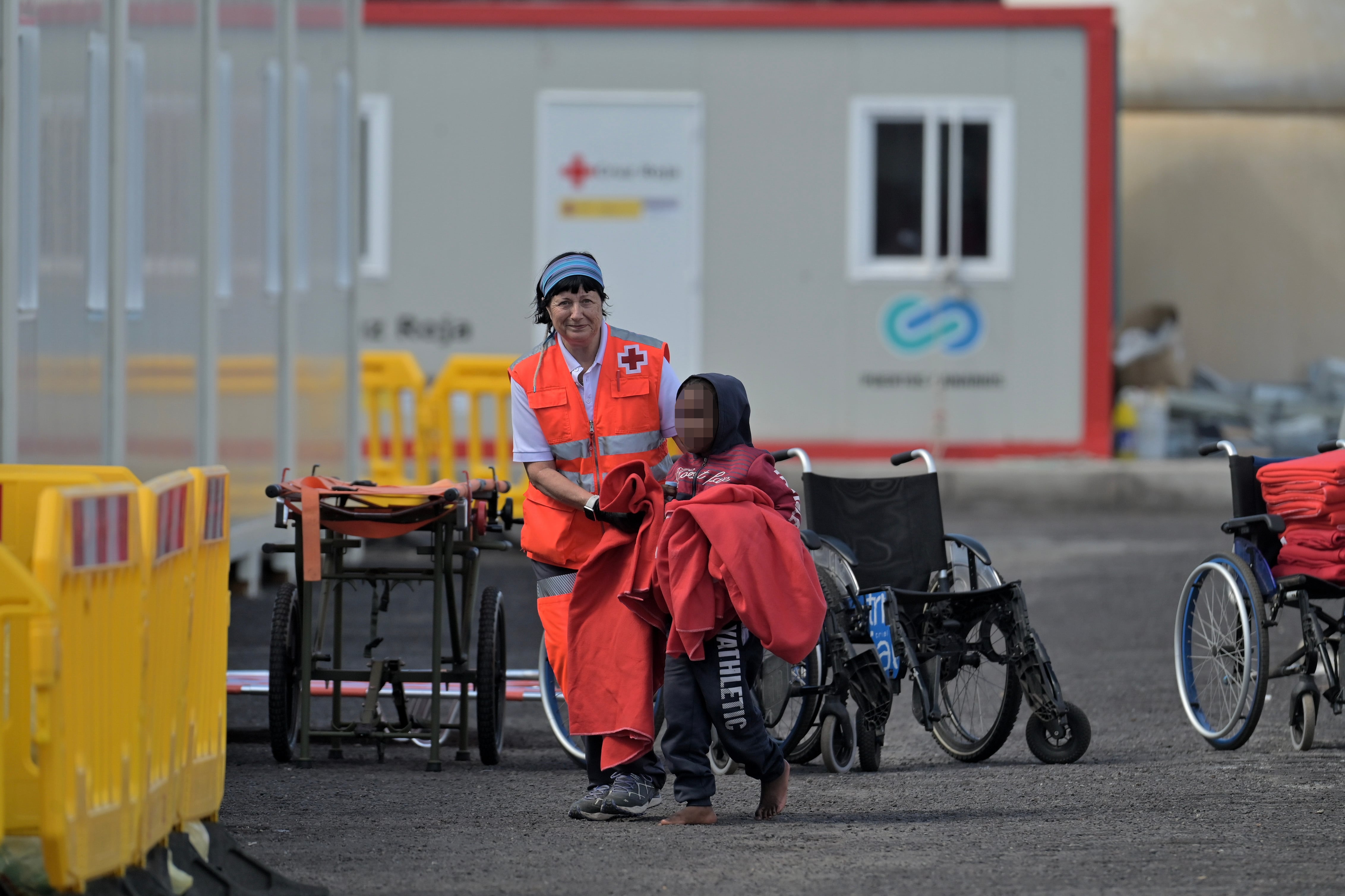55% of migrant minors in the Canary Islands need international protection, according to UNHCR | Spain

A report of United Nations High Commissioner for Refugees (UNHCR) shows that At least 55% of unaccompanied migrants in the Canary Islands With those who have maintained interviews, they could be in need of international protection, as can be seen from a report from the organization to which the country has accessed. In addition, 14% would need specific attention for medical or psychological or disability reasons, in 8% of cases, the institution is necessary to initiate the search for family members and/or the family reunification procedure.
« Each of these issues requires urgent attention by the competent authorities and an individualized and specialized monitoring of each child, which in the current conditions of overection of the centers and absence of sufficient human resources and with adequate qualification presents enormous challenges, » says the organization.
This document, dated in June, motivated that ACNUR sends a letter to the deputies to transfer their concern about “the difficult situation of unaccompanied minors arrived by sea” to the Canary Islands. « The particularly vulnerable profile presented by this group requires a determined, stable and predictable response for all children and adolescents, including those who are in need of international protection, » said ACNUR representative in Spain, Sophie Muller.
The situation of unaccompanied migrants currently crosses a crucial phase. On March 26, the Supreme Court ordered the central government to welcome more than a thousand minors that live overcrowded on the devices of the islands. Compliance with this car has motivated various meetings. According to Fuentes aware of the Immigration Interministerial Commission held on Tuesday, explained to this newspaper on Tuesday, The Government will present allegations to the Supreme Auto in which it will be made clear that the measure will be complied with, but not before insisting that the State does not have the appropriate means to serve these children and that the guardianship will continue to be of the Autonomous Community. They highlight, in turn, that the overcrowding that motivated the order will be reduced when the transfer of some 4,000 minors received in the islands. This transfer is another of the key points that will determine the situation of minors in the Canary Islands. At the beginning of March, PSOE and Junts agreed the reform of the Foreigner Law, agreed via Royal Decree between the PSOE and Junts that will allow the derivation of some 4,000 minors in the Canary Islands and Ceuta. This transfer will vote this Thursday in Congress.
Meanwhile, ACNUR alerts about the situation of minors. 67% of boys and 10% of the girls interviewed claim to be between 15 and 17 years old. 13% of boys and 1% of girls claim to be over 18 years old. According to data that emerge from their report, 14% would need specific attention for medical or psychological or disability reasons, in 8% of cases it is estimated to initiate the search for family members and/or the family reunification procedure and in 2% indications of being survivor are observed or being at risk of suffering trafficking for exploitation purposes. 42% of the children interviewed declare to be afraid of returning to their country of origin, the main reasons being the existence of an indiscriminate armed conflict, war or violence or the fear of repudiation or violence by the family or community.
Among the reasons that caused the exit of their country of origin, 28% indicate the existing conflict situation, 7% family violence, 6% labor exploitation or work in dangerous conditions, 5% gender violence, 3% discrimination due to their way of being or behaving, 3% forced recruitment and 2% sexual violence. Likewise, 65% of minors declared that among the reasons to get out of their country were, among others, the objective of improving their living conditions.
Most of the interviewees are Malian (208), Senegalese (162) and Moroccans (68). 74% arrived by sea in Spain from Mauritania and Senegal. During the trip to Spain, 13% of children declare having suffered some kind of violence, abuse or other form of abuse, including sexual violence, « highlighting the enormous risks involved in these journeys that can be increased according to the duration of the trip, » explains the report.
In relation to the question about whether someone forced or forced them to leave their country against their will, 10% children interviewed responded affirmatively, pointing out that in 87% of the cases they were a member of their family. 66% of the girls interviewed allege reasons related to international protection to get out of their countries, while, in the case of boys, the percentage falls to 54%. Of 35% of the 74 girls interviewed who claim to have suffered a persecution related to gender motives, 50% alleges forced marriage, 31% genital mutilation and 15% sexual abuse.








